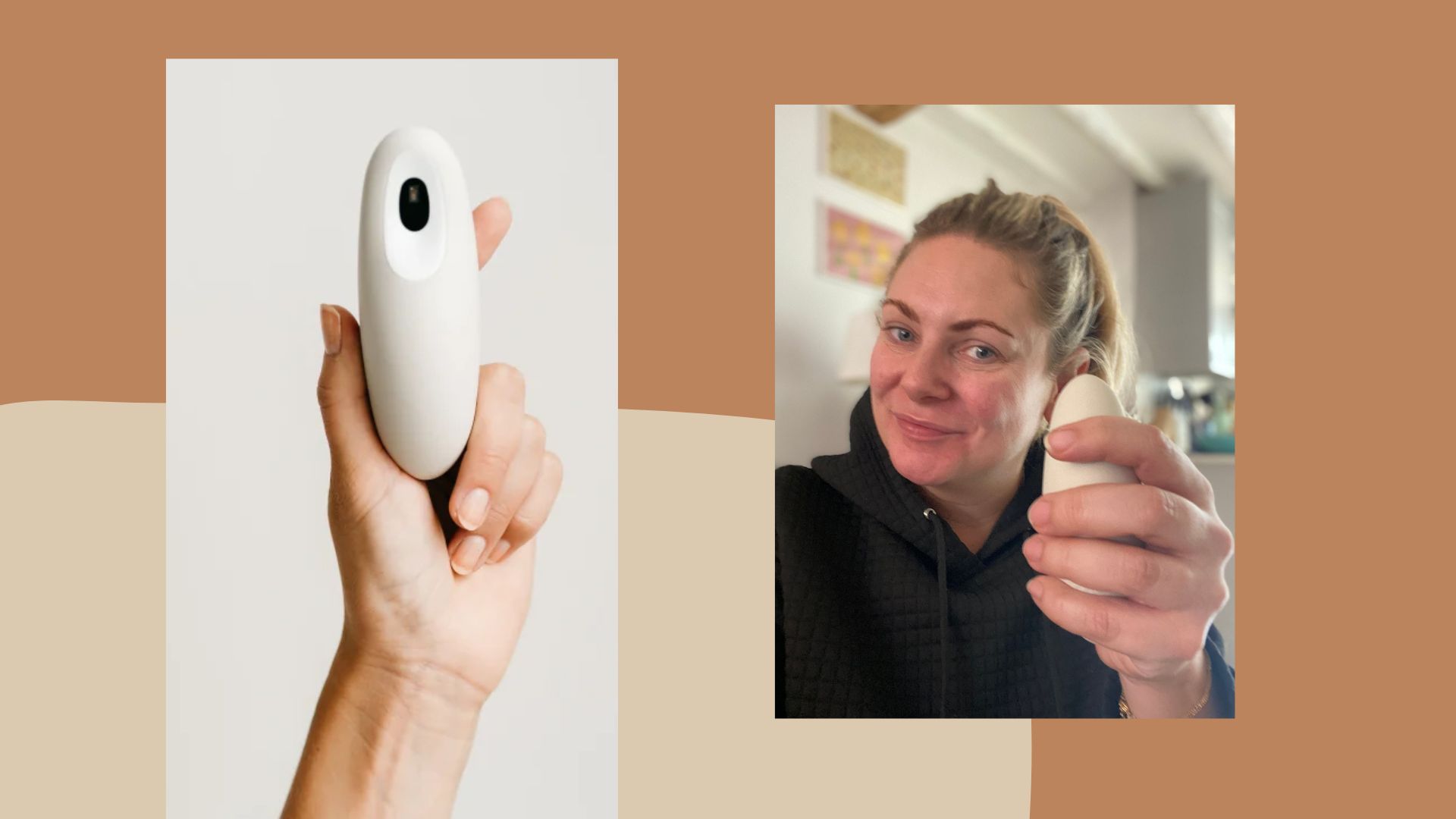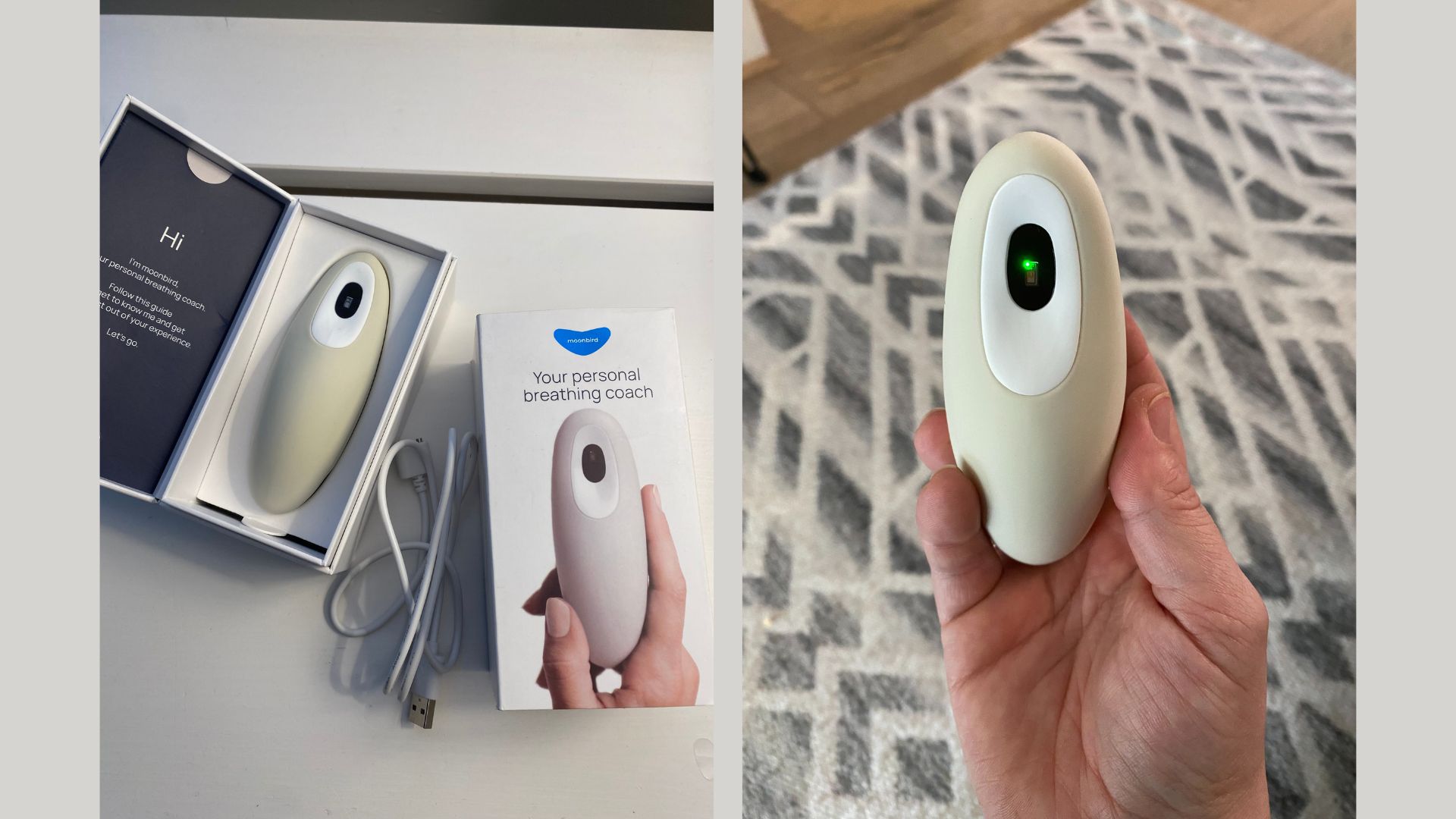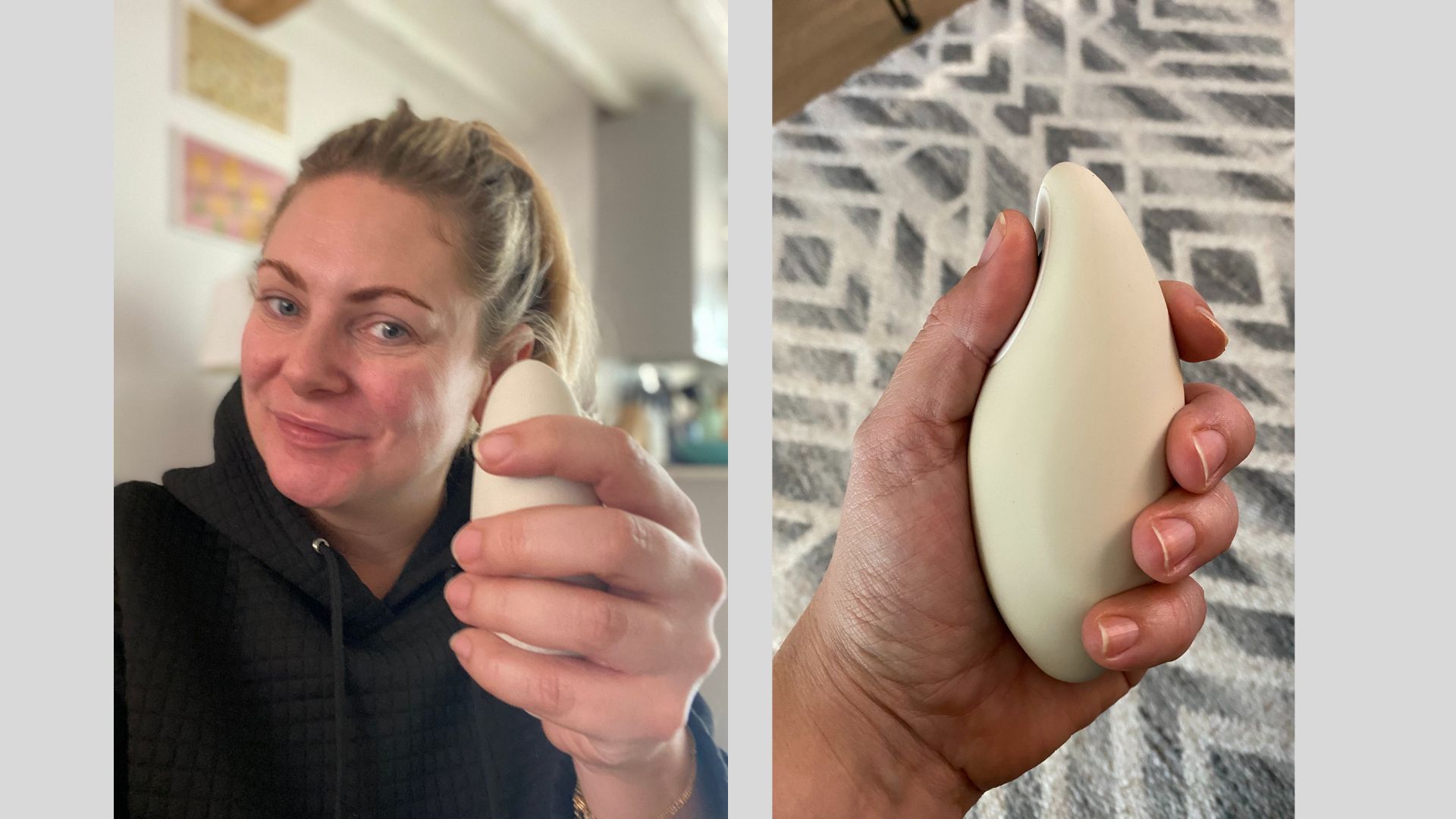
There is so much talk at the moment about breathing exercises for stress relief, breathwork and mindfulness that it can be hard to know where to start - especially if you’re like me and find it impossible to fully switch off.
As soon as I lie back, close my eyes and start to try and concentrate on my breathing, my mind begins whirling and I start to think about anything and everything other than my breath. I've tried various methods to learn how to reduce stress over the last few years but breathing exercises for stress relief is the one I've always struggled to get on board with. Yet, studies (by Nepal Medical College among others) say that it's one of the most effective ways to lower our heart rate immediately and even avoid the early signs of burnout.
After a stressful few weekends and little time to pick up my other favourite stress relievers (a hot bath or a drive by myself with a relaxing podcast), I was at my wit's end. That's when I heard about Moonbird - a handheld device, shaped to fit snugly in your palm with a thumb on a sensor. It's connected via Bluetooth to an app on your phone that gives real-time results on your heart rate. The app has various 'exercises' you can select that offer audio and motion-led assistance on the device, leading you through a deep breathing session.
I had my doubts when I first took the device from the box. Mindfulness and meditation sessions have rarely worked for me - so I didn’t have high hopes. Yet, after just four weeks of using this breathing device, I have changed my mind.
Benefits of using Moonbird breathing exercises for stress relief
1. You're forced to slow down and relax
Four weeks ago, on a Monday morning, I was in a terrible mood. My son had been pushing my buttons - refusing to put his socks on, arguing with me about brushing his teeth and answering back on everything I said. It was one of those mornings that made me want to scream into a pillow and quit parenting for good.
In times like these, I do suffer from stress. Sometimes the stress bubbles and I don't know what to do. After the stress of the morning was over, I still felt on edge - this seemed like the perfect time to try out the Moonbird. I selected the program on the app for slow breathing to reduce stress and held my finger to the sensor.
But holding the gadget and feeling the motions my brain automatically followed the pattern. My breathing slowed down and the morning’s craziness started to slowly lift away.
The next day, I did it again after another stressful morning. But this time, I tried it without the app. I just picked up the gadget and put my thumb to the sensor, triggering it to start expanding and contracting, guiding me to breathe in for five seconds and then out again for five. Again, after a few minutes, I felt calmer and ready to start the day, the boiling in my blood more of a simmer now.
My challenge was always getting my brain to focus on my breath. The difference between using the Moonbird and general breathing exercises for stress relief, I quickly discovered, was that the device stops your attention from wandering elsewhere. You have to breathe along with the device's rhythm as it expands and contracts in your hand.
2. It's convenient
Unlike some other stress-busting techniques, the Moonbird device is convenient. It's not exclusive to a workout studio and it doesn't require much time away from my normal schedule, rather it's placed in reach of my bed where I can pick it up before I go to sleep.
I’m one of those people who will climb into bed exhausted but as soon as I close my eyes my brain starts spiralling. Everything I need to do the next day comes to me all at once. I think about shopping lists, playdates, weekend plans and the washing. It's fair to say, I needed to develop a better sleep hygiene routine to learn how to sleep better.
Given my success with the breathing device after two stressful mornings, I was excited to see if the Moonbird would have the same effect in the evenings and help me drift off. I played the sleep exercise program on the app and while I didn't fall asleep instantly, I felt myself calm down. My brain stopped whirring so much, I felt the tension leave my body and my thoughts gradually slowed down. I was still awake a few minutes after I put the device back on my nightstand so I put on my standard go-to sleep story podcast and I must have drifted off pretty quickly after this as I don't remember much else.
Sleep is so precious to me - I’ll do anything to make sure I get enough. Over the whole month, I turned to the Moonbird before getting into bed and today, I still use it when my brain won't shut off. But I've also learnt that you can memorise the technique so I follow the same routine when I don't have the device to hand.

3. It can also help to relieve anxiety
Stress and anxiety go hand-in-hand. I've suffered from the latter for years now and I often experience obtrusive thoughts that affect my day-to-day life, but thanks to Cognitive Behavioural Therapy (CBT) I've had it under control in recent years. Occasionally though, the anxious thoughts still creep in.
Of course, I've been told that one of the best methods to relieve anxiety is through breathwork - but this is something I was relatively sceptical about too, given my experience with breathing exercises for stress relief.
A few weeks into using the device, I felt anxious about nothing and everything. Those who also suffer from anxiety will know the feeling well - my mind was just spiralling into strange thoughts and my go-to CBT methods weren't hitting the spot. So, I grabbed the gadget, sat down on my bed and followed the breathing motion.
Moonbird almost forces you to breathe automatically. You don't have to count the seconds, you inhale, hold, and exhale. Having slowed my breathing down, I felt better and forced myself to start a mundane task. At the end of the day, I realised that those obtrusive anxious thoughts hadn’t come back.
Dr Naveen Puri, Medical Director of Bupa Insurance, explains why this is. "If you're feeling anxious, using breathwork can effectively trick your brain into thinking you're calmer than you are. Inhaling and exhaling deeply helps speed up and then slow your heart rate, allowing a full oxygen exchange within your body. The lower that your heart rate is slowed, the calmer you will feel."
With practice, breathwork can help to reduce your 'fight or flight' response, he says. "This leaves you in a more controlled and prepared state when faced with challenges. Reducing the amount of stress you feel can go a long way towards keeping your body and mind well."

Does deep breathing reduce stress?
It will come as no surprise to you that, yes, deep breathing can certainly help us reduce our stress levels. But it can do this almost immediately, Dr Naveen Puri says. "The way that you breathe can influence the emotional state your brain thinks you're in. If you're happy, breathing becomes steady and more regular, but if you're feeling stressed or scared, breathing becomes quicker, more shallow, and uneven."
It was the knowledge of how powerful our breath can be that inspired co-founder Dr Stefanie Broes to bring Moonbird to life. "We have a sympathetic nervous system and when we're stressed, the fight or flight response comes. But in our society, it can be overactivated because we have too many stimuli that can cause stress."
We also all have the parasympathetic nervous system, which is what calms us down and helps us to rest and digest, she says. "When we breathe slowly, about five or six breaths per minute, within a couple of minutes you’ll activate the parasympathetic nervous system and restore the balance. The brain also shifts into a restful state, as does the body."
Who is this device suitable for?
I found the Moonbird device easy to use, and even my mum - who’s recently recovered from lung cancer surgery - managed the pauses and breathholds with struggle. "We focus on people suffering from stress, anxiety, and insomnia, but the product can be used by anyone over the age of four," says Broes. "[For example], there are a lot of children and adolescents who use it. Children need that balance too, so letting them hold the device and imagining it’s a bird breathing in and out and breathing with them can help calm them down."
Although a lot of people might think it’s daft to use a device to breathe - something we’re programmed to do automatically - when it comes to slowing down our breath, I'm not the only one who finds it near impossible.
The pressure of counting on the inhale, the hold, and the exhale can make it difficult to focus while also relaxing enough to get into the breathing exercise. For someone with a mind that’s constantly on the go, like me, this is perfect for making sure the brain slows down for just a few minutes each day.







